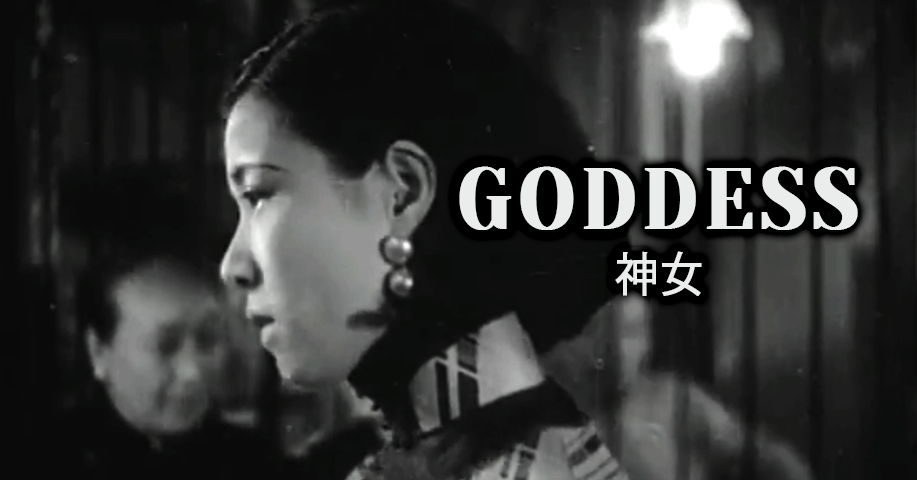GODDESS

GODDESS
(神女)
dir. Wu Yonggang, 1934
85 min. China.
Silent with Chinese & English intertitles.
TUESDAY, MAY 2 – 10 PM
FRIDAY, MAY 12 – 5 PM
WEDNESDAY, MAY 24 – 7:30 PM
SUNDAY, MAY 28 – 5 PM
Considered to be the most celebrated work produced during China’s silent film era, Wu Yonggang’s GODDESS is a devastating take on the “fallen woman” archetype, noted for its incredibly frank yet compassionate depiction of sex work at a time when it was widely seen as a societal ill. Set in 1930s Shanghai, Ruan Lingyu plays an unnamed mother, credited only as the “Goddess”, who sacrifices everything for the sake of her son’s happiness and education. One evening, while attempting to avoid a police sweep, she falls in with a local “Boss” who has his own plans in store for her and her son.
GODDESS touches on a host of contemporary issues that were the subject of social reforms throughout the 1920s and 30s— most notably, prostitution and education. The type of police sweep that resulted in the degenerate “Boss” entering the protagonist’s life was a common occurrence in 1930s Shanghai; a direct result of the New Life Movement that pushed sex work away from familiar local settings and into the city’s more dangerous foreign concessions. Likewise, the subplot involving her son’s school enrollment echoed calls from progressives that it was the responsibility of educators to provide an education to any child, regardless of their upbringing; relating back to the Confucian ideology termed “education without discrimination” (有教无类).
Even Wu’s choice of title carries with it a deeper meaning in its larger cultural context, on the one hand translating literally to “woman god”, while on the other, recognizable to Chinese audiences as a common euphemism for “streetwalkers”— as if to suggest that the two are one in the same.

